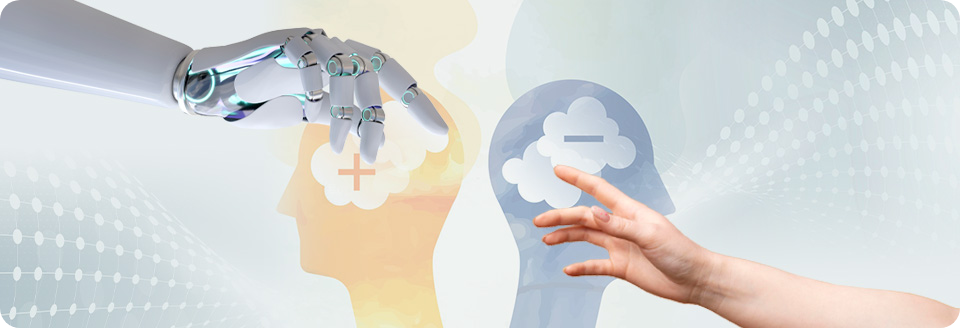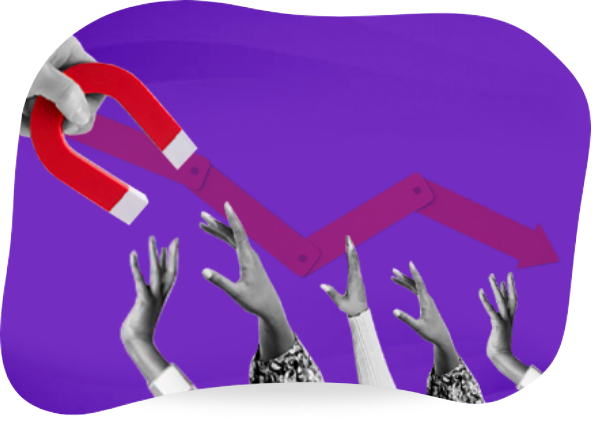Unlocking the Power of AI – The Pros and Cons

Artificial intelligence (AI) is a rapidly evolving field that has the potential to revolutionise the way we live and work. From chatbots and virtual assistants to self-driving cars and surgical robots, AI is already being used in a wide range of applications. It has the power to improve efficiency, increase productivity, and make our lives easier in countless ways.
But as with any new technology, there are also potential drawbacks and risks to consider. This blog will explore the many different aspects of AI, including its current and potential uses, the challenges it poses, and the ethical and societal issues it raises. From the latest research and developments to real-world examples and practical advice, this blog will provide a comprehensive look at the world of AI, along with its advantages and disadvantages.
Advantages of AI
Artificial intelligence can bring many advantages to a wide range of industries and applications. Here are a few examples of the benefits of AI:
- Increased efficiency: One of the main benefits of AI is that it can automate many tasks, increasing efficiency and reducing the need for human labour. This can lead to cost savings for businesses and organisations, and can also free up time for people to focus on more creative and fulfilling work.
- Improved decision-making: AI systems can process large amounts of data quickly and accurately, making it possible to identify patterns and insights that might otherwise go unnoticed. This can help organisations make better decisions and improve their operations.
- Enhanced productivity: AI can work tirelessly without breaks and with high precision, which makes it possible for industries like manufacturing, healthcare, and logistics to enhance their productivity levels and improve the efficiency of their processes.
- Better predictions and forecasts: AI can analyse large amounts of data to make predictions and forecasts, which can be beneficial in a variety of fields, such as weather forecasting and financial forecasting.
- Improved customer service: AI-powered chatbots and virtual assistants can provide around-the-clock assistance, helping to improve the customer experience.
- Fraud detection: AI can be used to analyse financial transactions and identify suspicious activity, which can help prevent fraud.
These are just a few examples of how AI can be used to bring about tangible benefits. As the technology continues to advance, we can expect to see even more exciting applications of AI in the future.
Disadvantages of AI
While artificial intelligence can bring many benefits, there are also potential downsides and risks associated with the technology. Here are a few examples of the disadvantages of AI:
- Job Losses: One of the biggest concerns about AI is that it will lead to job losses, as machines and algorithms replace human workers. This is particularly a concern in industries where repetitive tasks are common, such as manufacturing and customer service.
- Bias and Discrimination: AI systems are only as good as the data they are trained on. If the data is biassed, the AI system will learn and perpetuate those biases. This can lead to discrimination in decision-making, such as in hiring or lending.
- Lack of Creativity: AI systems are not capable of creative thinking, and cannot come up with new ideas or approaches. In creative fields such as art, music, and writing, AI is limited in its ability to truly create something new and original.
- Dependence: Reliance on AI can cause a lack of critical thinking and problem-solving skills among individuals, which can lead to a lack of innovation and creativity, ultimately making us dependent on AI systems.
- Lack of transparency: Some AI systems, particularly those using deep learning, can be difficult to interpret, which can make it hard to understand how decisions are being made. This lack of transparency can make it difficult to trust the system.
- Privacy concerns: AI systems can be used to collect, store, and analyse large amounts of personal data, which can raise concerns about privacy and data security.
- Security risks: As AI systems become more advanced, they can also become more attractive targets for cyberattacks.
It’s important to consider these potential downsides and risks when implementing AI systems, and to put measures in place to mitigate them. Moreover, further research and regulation is needed to ensure that these risks are addressed and that AI is used ethically.
AI in Sales Industry
Artificial intelligence (AI) is becoming an increasingly important tool in the sales industry. As more and more data becomes available, AI-powered systems are able to analyse this data to identify patterns and make predictions that can help businesses improve their sales and marketing efforts. From chatbots and virtual assistants to predictive analytics and machine learning, AI is being used in a wide range of applications to streamline the sales process and improve customer engagement.
The integration of AI in sales enables businesses to automate repetitive and time-consuming tasks, freeing up sales reps to focus on more high-value activities such as building relationships with key customers and closing deals. It also provides them with valuable insights into customer behaviour and needs, allowing them to tailor their approach and increase conversions.
Artificial intelligence (AI)-powered tools like Nytro can bring many benefits to sales teams. Here are a few ways how Nytro can empower sales teams:
- Nytro uses artificial intelligence technology to help sales reps practise and improve their pitch delivery skills. This can include features such as speech recognition, natural language processing, and machine learning algorithms to analyse and provide feedback on the user’s pitch, tone, pacing, and other aspects of their delivery.
- Nytro can analyse the performance of previous calls and provide recommendations for optimization, which can help sales teams improve their communication with prospects.
- Nytro is designed to help sales leaders and teams improve their sales readiness and performance. It helps sales leaders to onboard, train, and coach their sales reps.
- Nytro helps to mitigate rep turnover rates by providing sales reps with the training, real-time feedback, and support they need to improve their sales pitch and performance. It provides automated performance tracking and analytics, which can help managers to identify and address any performance issues with individual reps or the team as a whole.
- Empowering your third-party partners with Nytro.ai can help them to improve their sales pitch and performance, leading to increased sales for both your company and your partners.
- Building customer success rep confidence with Nytro.ai’s pitch intelligence can help them to improve their performance and effectiveness in communicating with customers and ensure that customers get onboarded successfully.
- Nytro.ai’s can provide valuable insights and feedback for managers and sales leaders to better understand the performance of their team as it uses AI to evaluate and analyse demo pitch recordings of customer-facing reps. By analysing the recordings, Nytro.ai can identify specific areas where reps may need additional training and help managers to identify top performers.
By using AI-powered tools like Nytro.ai, sales and customer success reps can gain insights into the various aspects of sales. It enables your inside sales teams and partners to confidently represent your company, resulting in an increase in sales and revenue.




